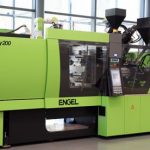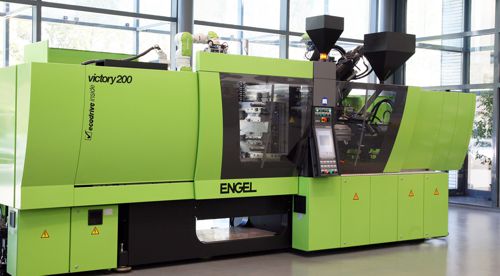
Quality Control of Injection Molding Machines
Project focus
- Data-driven modeling of part quality considering visual quality inspection
- Repetitive control strategies for stable, high-quality production
- Cycle time optimization under quality and robustness constraints
Description
Injection molding is one of the most widely used manufacturing techniques for producing high volumes of plastic components. Despite its ubiquity, ensuring consistent product quality remains a challenge due to the highly nonlinear dynamics of the process and its sensitivity to environmental conditions and material variability.

Photo of an injection molding machine
This research project, conducted in collaboration with the industrial partner the Center for Vision, Automation & Control, AIT Austrian Institute of Technology GmbH, addresses the need for high-precision, automated quality control in injection molding. The focus lies on developing advanced data-driven methods to achieve consistent product quality and optimal cycle time — two critical factors in modern manufacturing.
This project develops machine learning models to predict part quality to establish the relation physical process data (e.g., cavity pressure) and visual feedback. These models support real-time quality control from cycle to cycle beyond the conventional weight-based criteria. By employing iterative learning control (ILC), the process can adapt to changing conditions across cycles, reducing operator dependency.
In addition, the project investigates cycle time optimization under quality constraints, ensuring efficiency without compromising robustness. The combination of data-driven modeling and repetitive control enables a more reliable and autonomous injection molding process.
This project contributes to the transition from operator-dependent process tuning to automated, intelligent quality control in injection molding. By combining machine learning and control theory, we enable robust, fast, and reliable production even under variable ambient and material conditions.